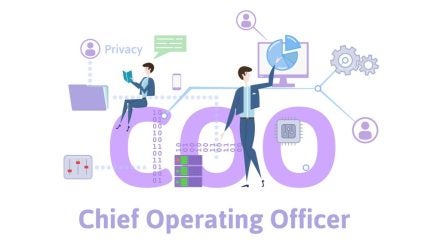

The role of a chief operating officer (COO) has gone through an extensive transformation over the past couple of years, with major responsibilities changing as organisations begin to act out of pure necessity. There is a universal appreciation within the business world regarding the impact an effective and highly skilled COO can have within an organisation in relation to growth and operational performance.
Staying competitive in any industry post-pandemic is proving extremely challenging. There also appears to be a recurring trend as organisations have identified the need for change in their business models, placing more emphasis on the vision of the COO and their ability to acclimatise to change, which can mean the difference between surviving or thriving as they move forward.
That same belief is pressuring corporations to focus more attention and interest on the value of pairing CEOs with problem-solving COOs who can boost a culture of innovation, agility and adaptation. We must now examine how this ever-evolving role has changed.
The COO must lead digital transformation
The new face of the COO is to instigate transformational change by translating business and customer strategies into innovative offerings to drive customer service satisfaction and enhance value. Organisations that have a primary focus on change and innovation are predominantly market leaders, while those that react to competitors will find themselves at risk.
This is a prime example of a key change in the role in recent years – and a technologically focused and skilled COO can make all the difference. The role has evolved, with the modern COO needing to be familiar with new perspectives of technologies that will change the way their respective business operates. With growing frequency, the COO spearheads the strategic business planning and transformation function, which converts corporate-level plans into a set of discrete change initiatives. As a transformation champion, the COO is held accountable for driving investments that transform the business.
COOs and the changing face of reporting
The modern COO has a high level of visibility and accountability within the organisation, including its reporting structures. Gone are the days when the COO had excellent business and relationship acumen but lacked technology expertise. In today’s world, the COO must use their leadership skills to ensure their business utilises the best technology while maintaining the right level of risk to make the organisation safe.

US Tariffs are shifting - will you react or anticipate?
Don’t let policy changes catch you off guard. Stay proactive with real-time data and expert analysis.
By GlobalDataAlong with their core duties, the modern COO is required to understand the outcomes of the chosen technology upon the entire organisation. They should capitalise on the opportunity to shift from their core responsibilities and develop a clear, company-wide vision by partnering with business leaders to shape strategy and define the business model in order to maximise results.
The fundamental and most important factor for a COO
For many organisations, the impact of the Covid-19 pandemic is yet to fully play out. This will require the effective COO to seek to deepen their organisation’s capabilities across a variety of areas, striking the right balance between legacy business and innovative capability areas.
Visionary COOs have much to bring to their organisations in the years and decades to come, not only in terms of their awareness of the operations of a company but in how those operations affect potential clients and partners and are viewed by them. A forward-thinking COO can create policies and drive decisions that enable their facilities to forge ahead in uncharted space by focusing on strategy and technical innovation.
To read Tarek Meliti’s article about the changing role of the chief financial officer, click here.


